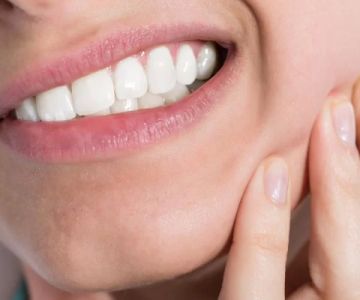How to Prevent Gum Inflammation with the Right Diet
Gum inflammation, also known as gingivitis, is a common dental issue that many people experience. It is caused by the buildup of plaque on the teeth, leading to irritation of the gums. Fortunately, gum inflammation can often be prevented or minimized through proper oral hygiene and, importantly, a balanced diet. In this article, I’ll share practical tips on how to prevent gum inflammation through the right diet, along with some lifestyle changes that can enhance your oral health.
1. Understanding Gum Inflammation and Its Causes
Before diving into the diet tips, it’s essential to understand what causes gum inflammation. Gingivitis occurs when plaque, a sticky film of bacteria, accumulates on your teeth and gums. If not removed through regular brushing and flossing, the bacteria in plaque can irritate the gum tissues, causing them to become swollen, red, and bleed easily.
Diet plays a significant role in the development and prevention of gum disease. Eating the wrong foods, like those high in sugar, can contribute to plaque buildup and worsen gum inflammation. On the other hand, a diet rich in specific nutrients can help maintain healthy gums and reduce the risk of gingivitis.
2. Incorporate Anti-Inflammatory Foods
One of the best ways to prevent gum inflammation is by including anti-inflammatory foods in your diet. These foods help reduce swelling and promote healing. Foods that are rich in omega-3 fatty acids, such as salmon, flaxseeds, and walnuts, are excellent choices. Omega-3s help lower inflammation throughout the body, including in the gums.
Additionally, fruits and vegetables high in antioxidants, like berries, spinach, and broccoli, can help combat inflammation by neutralizing harmful free radicals. Vitamin C, found abundantly in citrus fruits like oranges and grapefruits, is particularly beneficial for gum health as it strengthens the blood vessels in the gums and helps prevent bleeding.
3. Stay Hydrated for Optimal Oral Health
Water is not just essential for your overall health; it plays a critical role in maintaining oral hygiene as well. Staying hydrated helps wash away food particles and bacteria from your mouth, preventing plaque buildup. Additionally, drinking plenty of water encourages the production of saliva, which acts as a natural defense against gum inflammation.
Saliva helps neutralize acids produced by bacteria in the mouth and provides disease-fighting substances throughout the mouth. If you’re dehydrated, you may experience dry mouth, which can increase the risk of gum disease. So, make sure to drink water regularly throughout the day to keep your gums and mouth hydrated.
4. Avoid Sugar-Rich and Acidic Foods
One of the worst things you can do for your gums is to consume foods and beverages that are high in sugar and acidity. Sugar feeds the harmful bacteria in your mouth, leading to plaque buildup and gum inflammation. It’s particularly important to avoid sugary snacks and drinks between meals, as this provides bacteria with a constant supply of food to grow on.
Acidic foods and drinks, like soda and citrus juices, can also irritate your gums. These foods can weaken the enamel on your teeth, making them more vulnerable to plaque buildup and inflammation. While a little bit of acidity isn’t harmful, consuming acidic foods in excess can contribute to gum problems over time. Opt for low-sugar snacks like nuts, yogurt, and whole grains, and drink water or unsweetened beverages to avoid unnecessary sugar and acid intake.
5. Add Foods Rich in Calcium and Vitamin D
Calcium and vitamin D are essential nutrients for strong teeth and gums. Calcium helps keep your teeth strong by reinforcing the enamel, while vitamin D is crucial for the absorption of calcium in your body. Including calcium-rich foods like milk, cheese, yogurt, and leafy greens in your diet can help strengthen your teeth and prevent gum disease.
Vitamin D, found in foods like fatty fish (salmon, tuna), eggs, and fortified milk, helps reduce the risk of inflammation and is vital for overall oral health. Getting enough vitamin D ensures that your body can properly absorb calcium, promoting healthy gums and teeth. You can also get vitamin D from sunlight, so don’t forget to spend some time outdoors each day.
6. Use Green Tea as a Natural Anti-Inflammatory
Green tea is not only a refreshing beverage but also a natural remedy for gum inflammation. Rich in antioxidants, particularly catechins, green tea has anti-inflammatory properties that help reduce the symptoms of gum disease. Drinking a cup of green tea daily can help fight the bacteria that cause gingivitis and promote overall gum health.
Some studies suggest that green tea can reduce the amount of plaque on teeth and improve the health of your gums. Whether you drink it hot or cold, adding green tea to your diet can be an effective and simple way to reduce gum inflammation naturally.
7. Avoid Smoking and Limit Alcohol Consumption
While this isn’t directly related to diet, lifestyle factors like smoking and excessive alcohol consumption can significantly contribute to gum inflammation. Smoking reduces blood flow to the gums, making it harder for them to heal and increasing the risk of gum disease. It also increases plaque buildup, which leads to inflammation.
Excessive alcohol consumption can also harm your gums by leading to dry mouth and reducing the effectiveness of saliva. If you want to keep your gums healthy, it’s essential to avoid smoking and drink alcohol in moderation. By combining a healthy diet with positive lifestyle changes, you can dramatically improve your oral health.
8. Schedule Regular Dental Check-ups
Finally, while diet plays a crucial role in gum health, it’s important to remember that regular dental check-ups are just as important. Your dentist can help you detect early signs of gum disease and provide professional cleanings that remove plaque and tartar buildup. Regular check-ups can also help you learn more about maintaining proper oral hygiene at home.
Incorporating these diet tips along with consistent oral care practices like brushing and flossing will help you prevent gum inflammation and maintain a healthy mouth for years to come.







 Westgate Dental Arts
Westgate Dental Arts Coventry Family Dental
Coventry Family Dental Familia Dental
Familia Dental Dr. Daniel S. Fife, DDS
Dr. Daniel S. Fife, DDS Dentistry At Suburban Square: Michael I. Wollock, DMD
Dentistry At Suburban Square: Michael I. Wollock, DMD Comfort Care Dental
Comfort Care Dental The Importance of Oral Health Education During Pregnancy for a Healthy Pregnancy
The Importance of Oral Health Education During Pregnancy for a Healthy Pregnancy Why Skipping Dental Checkups Can Lead to Bigger Oral Health Problems
Why Skipping Dental Checkups Can Lead to Bigger Oral Health Problems Advantages of Porcelain Dental Restorations
Advantages of Porcelain Dental Restorations Best Tips for Brushing Your Teeth Properly for Healthy Gums: Essential Techniques for Oral Health
Best Tips for Brushing Your Teeth Properly for Healthy Gums: Essential Techniques for Oral Health How Can Diabetes Cause Tooth and Gum Problems? Preventing and Managing Oral Health Issues
How Can Diabetes Cause Tooth and Gum Problems? Preventing and Managing Oral Health Issues Healthy Habits for Promoting Good Oral Health and Hygiene: Tips for a Healthy Smile
Healthy Habits for Promoting Good Oral Health and Hygiene: Tips for a Healthy Smile